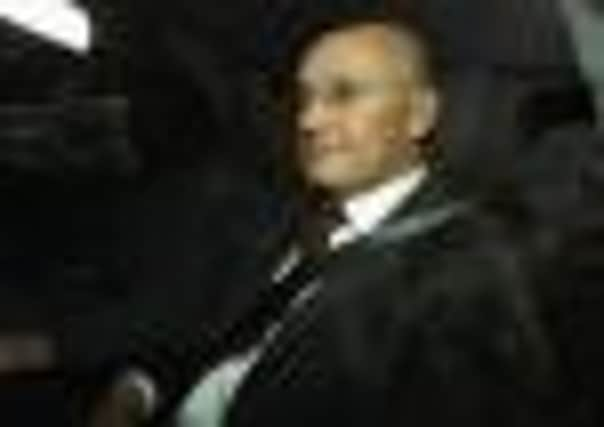Met accused of ‘back of an envelope’ review over hacking cases


Sir Paul Stephenson, who quit as Metropolitan Police commissioner over the hacking scandal, told the Leveson Inquiry into press standards yesterday that his officers failed to “challenge” assumptions about the 2006 probe.
Inquiry chairman Lord Justice Leveson suggested that police carried out a “back-of-the-envelope” review when the Guardian revealed in a July 2009 article that the illegal practice was far more widespread than previously believed.
Advertisement
Hide AdAdvertisement
Hide AdSir Paul also revealed that London Mayor Boris Johnson’s deputy, Kit Malthouse, complained about the high level of resources the Met devoted to the new phone hacking investigation it finally launched in January 2011.
Scotland Yard’s original hacking inquiry resulted in the jailing of News of the World royal editor Clive Goodman and private investigator Glenn Mulcaire in January 2007 after they admitted intercepting voicemail messages left on royal aides’ phones.
But the force was widely criticised for limiting the scope of the investigation despite evidence from Mulcaire’s notebooks that there could be many more hacking victims.
Sir Paul told the Leveson Inquiry he did not read the 9 July 2009 Guardian story, which claimed his force’s original hacking probe was inadequate.
Instead he told then-assistant commissioner John Yates to look into the newspaper’s allegations. The former commissioner said: “It was just another headline – I don’t mean to say it dismissively – some noise about an event that I expected someone to pick up and deal with.”
Mr Yates began his examination of the Guardian’s claims on the morning the article appeared, and in the late afternoon made a media statement dismissing calls for the phone-hacking investigation to be re-opened.
Lord Justice Leveson asked Sir Paul: “Do you think in 2009 it was a reasonable approach to respond to what was this very detailed, researched article – which I appreciate you hadn’t read – by what perhaps I might be forgiven for describing as a back-of-the-envelope job for the day, and coming out so quickly with a response?”
The former commissioner replied: “My understanding is there was much ongoing work after that date to continue to consider was there anything new coming to light, but that’s a matter that only Mr Yates can have the discussion with you (about).”
Advertisement
Hide AdAdvertisement
Hide AdSir Paul said he had further discussions with Mr Yates when the New York Times published a lengthy article in September 2010 about phone hacking at the News of the World.
He told the inquiry: “I would have challenged him to say, ‘are you absolutely sure we shouldn’t open this up any further?’ I was satisfied with the briefings I was getting.”
The former commissioner said the Met developed a “defensive mindset” regarding phone hacking very early, adding: “That stopped us going back and challenging what was the reason for the original investigation.”
He went on: “We got ourselves almost hooked on a defensive strategy that we wouldn’t expend significant resources without new or additional evidence.”
The Leveson Inquiry is to hear evidence today from former Met commissioners Lord Condon and Lord Stevens.